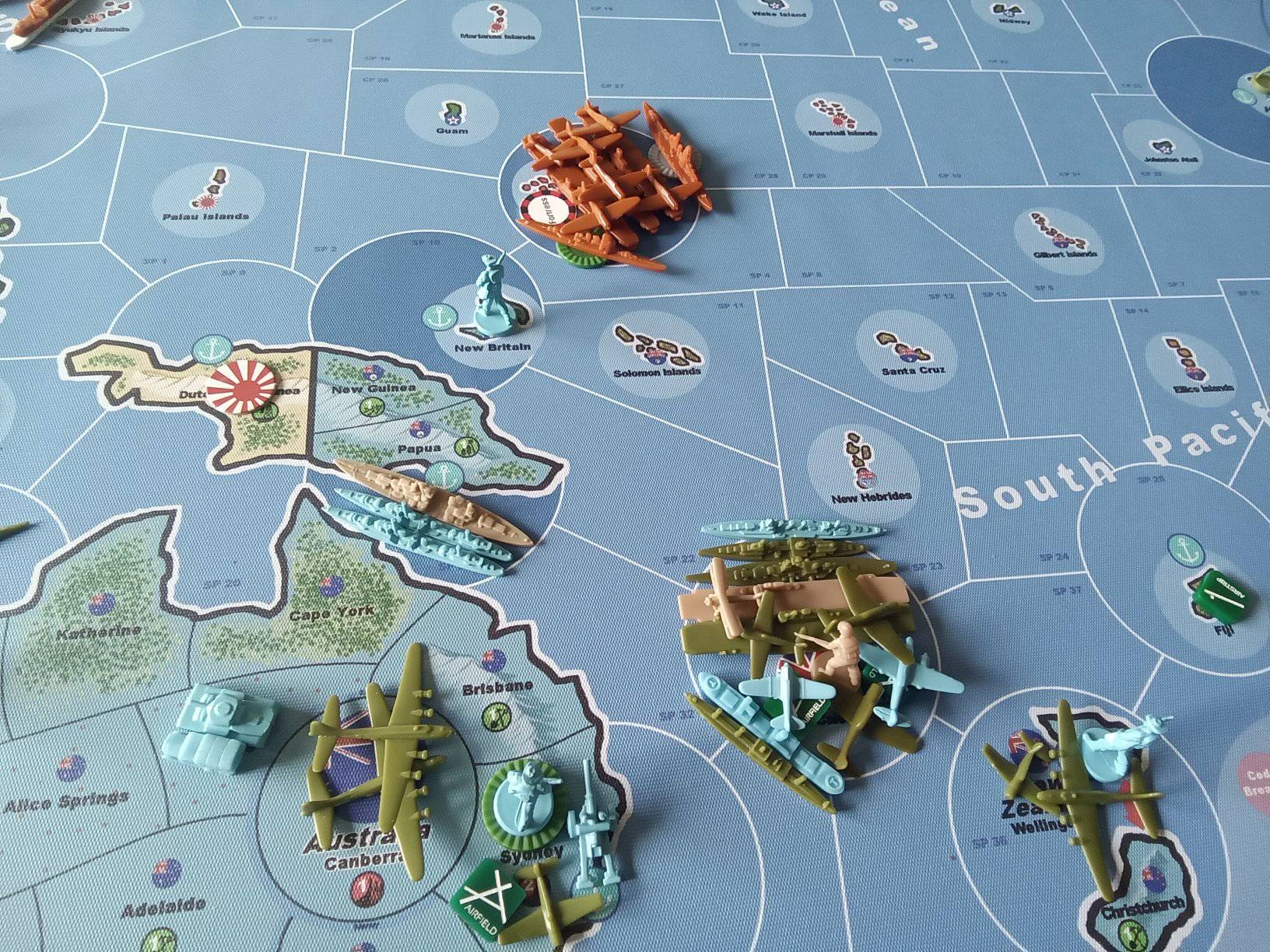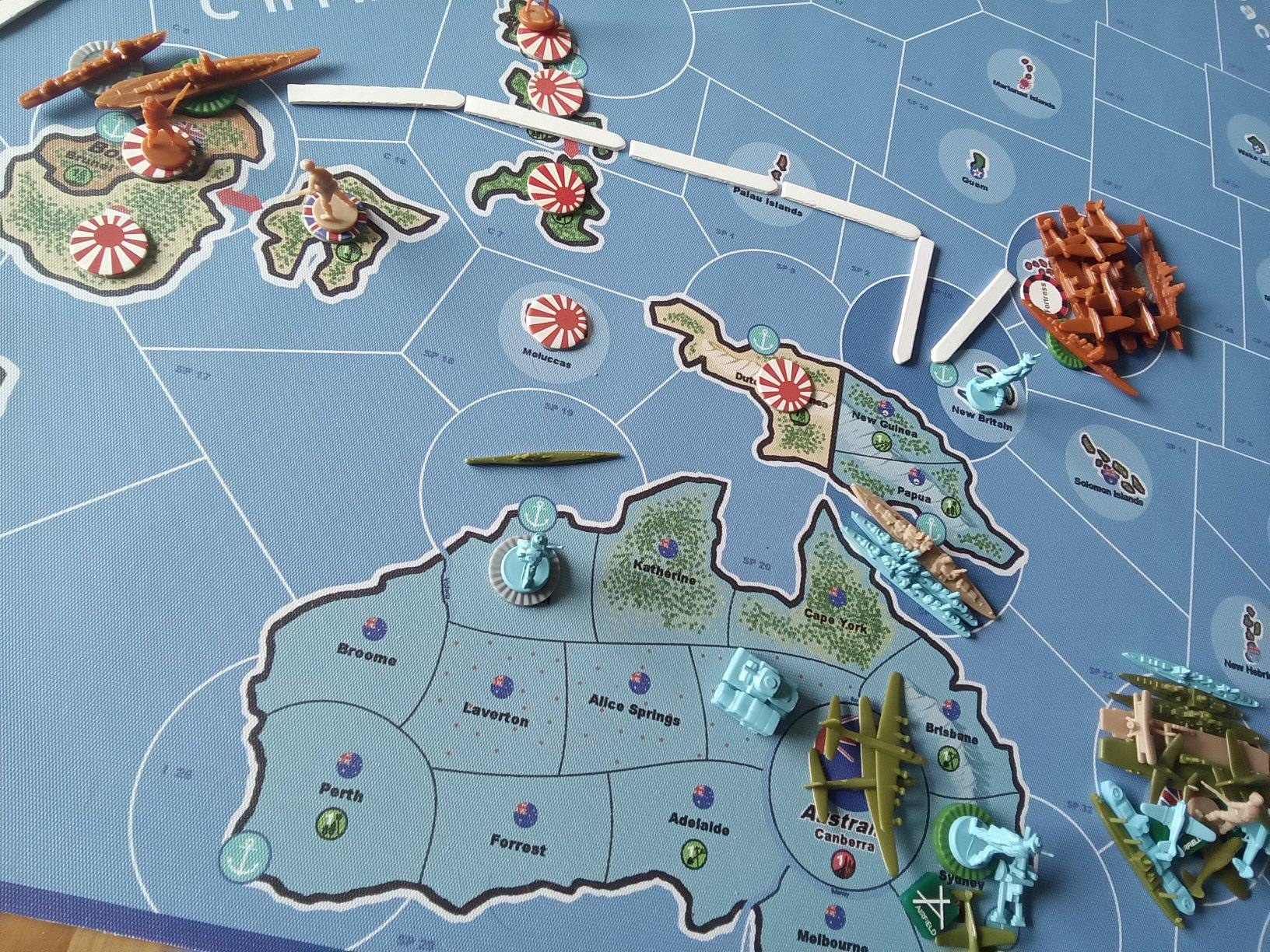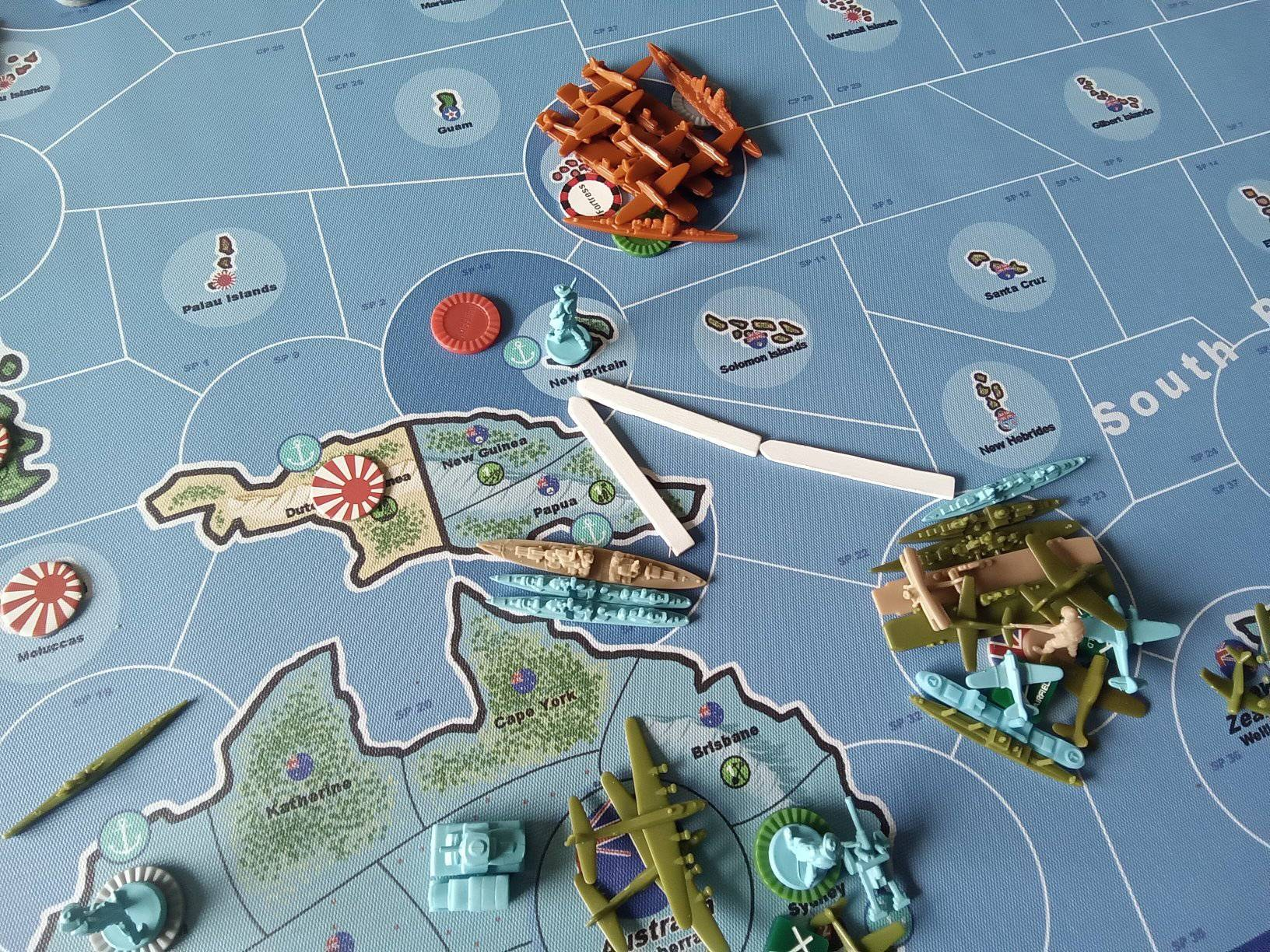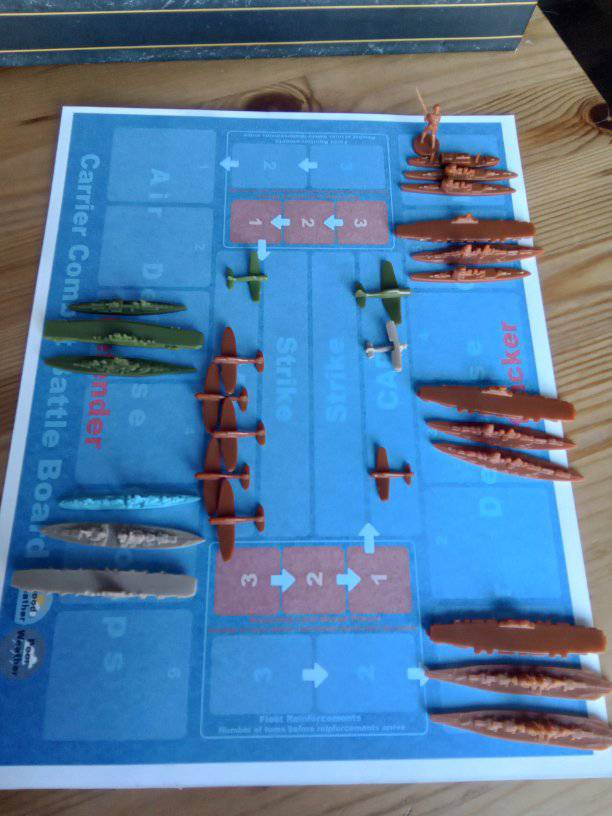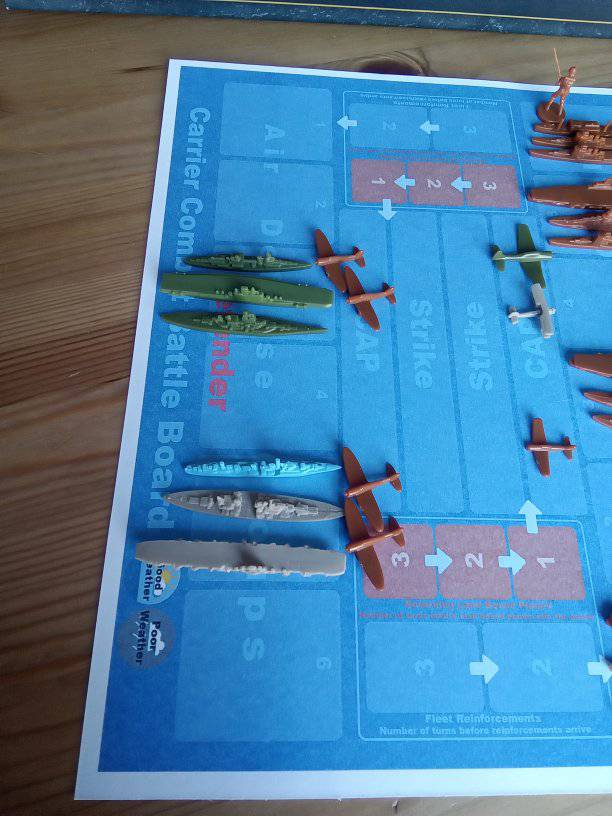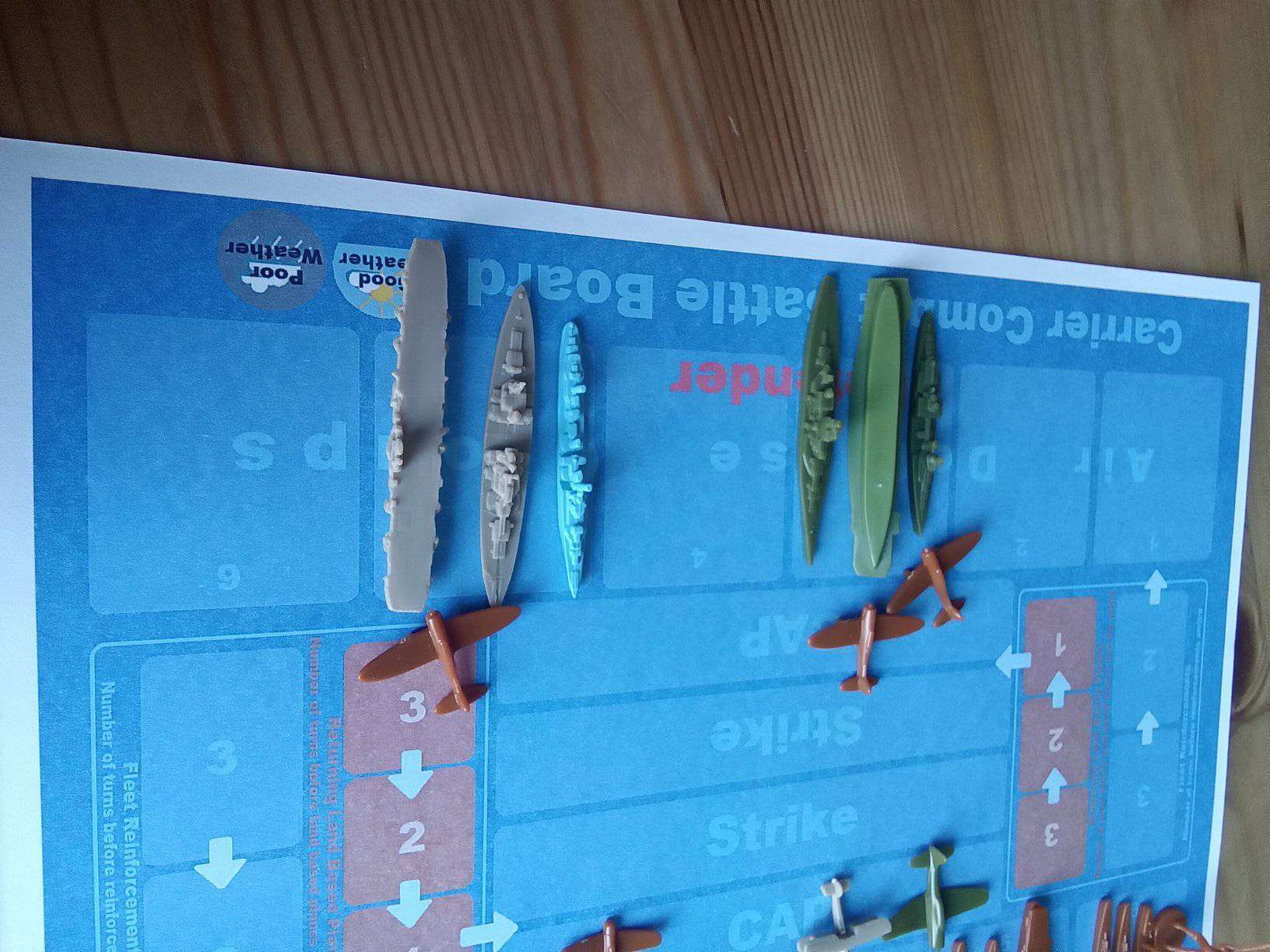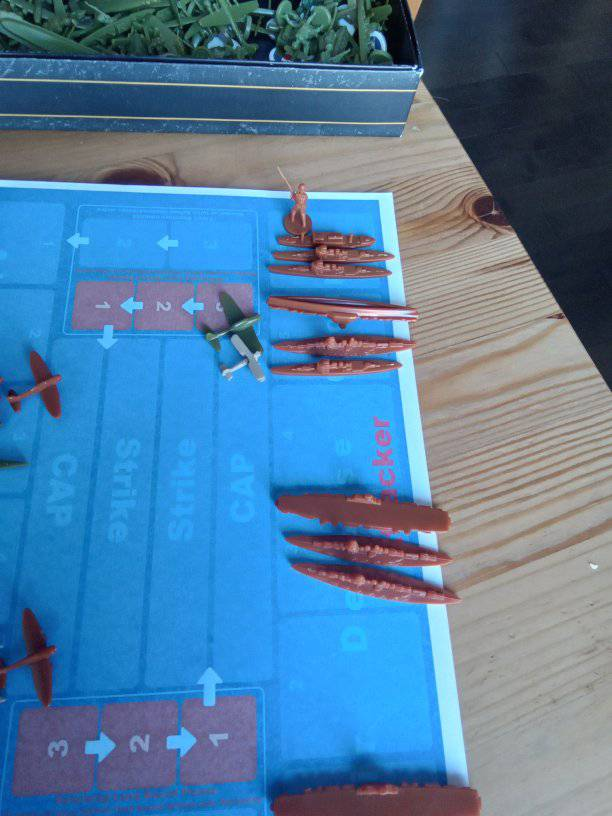
- It is the Allies’ turn. The US fleet is New Britain, and the Japanese have a fleet in the Carolines.

2. The US fleet in New Britain is going to send an American infantry to invade Palau Islands. The fleet’s path must be announced.

3. The Japanese know the Allies are at sea because they pass a space next to their port in the Carolines. The Japanese then decide to try to intercept the Allied fleet in the space designated as the interception space.

4. With interception successful, in order for the Allied fleet to complete its mission, it will need to win the sea battle with the Japanese first. Units will be transferred to the Battle Board.
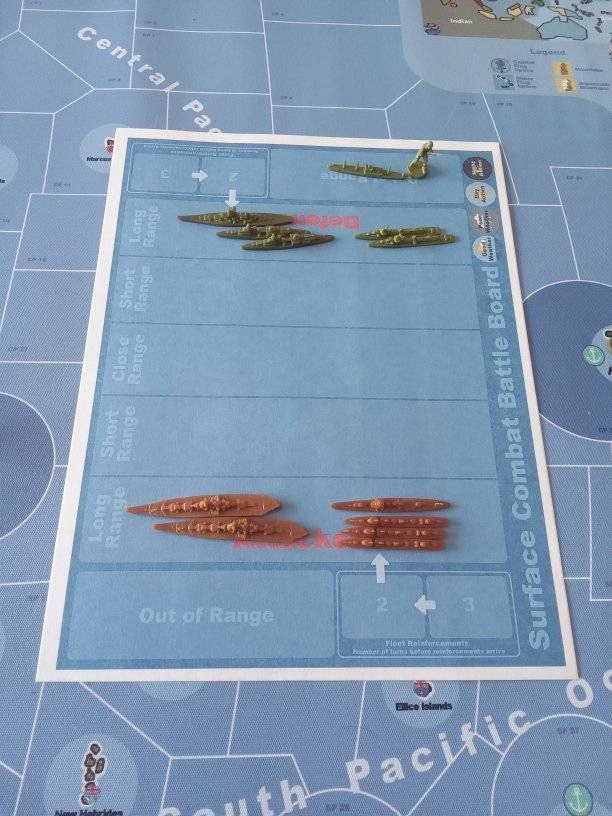
5. With clear weather, both sides set up in the ‘Long Range’ boxes on their respective sides. The US transport with its cargo must be set up in the “Out of Range” box. The Japanese as the attacker fires first. Because of the extreme range, only the battleships can hit the US fleet, and only at a ‘1’. Both Japanese battleships target the US battleship. Both miss. Then the US fleet fires its battleship at a ‘1’, as its cruisers and destroyers are out of range.

6. Once both sides have fired, it is now the 'Manoeuvre ’ step. Japanese decide to move all their ships in closer.

7. The Americans decide to keep their heavy ships back, but move their destroyers up. Ships can only move forwards or back 1 space, except for destroyers, which can move 2.

8. It is now the second round of firing. Both Japanese battleships and the cruiser target the US battleship and score a hit, even with the range penalties. The 3 Japanese destroyers have 2 option: either fire torpedoes, or fire guns. The choose to fire torpedoes - 2 destroyers target on US destroyer, and the 3rd targets the second US destroyer.

9. Both US destroyers are hit.

10. It is now the US’s turn. the battleship and both cruisers target a single Japanese battleship, while the 2 US destroyers will target the second Japanese battleship with torpedoes. The destroyers both hit their target, but the other ships miss.











